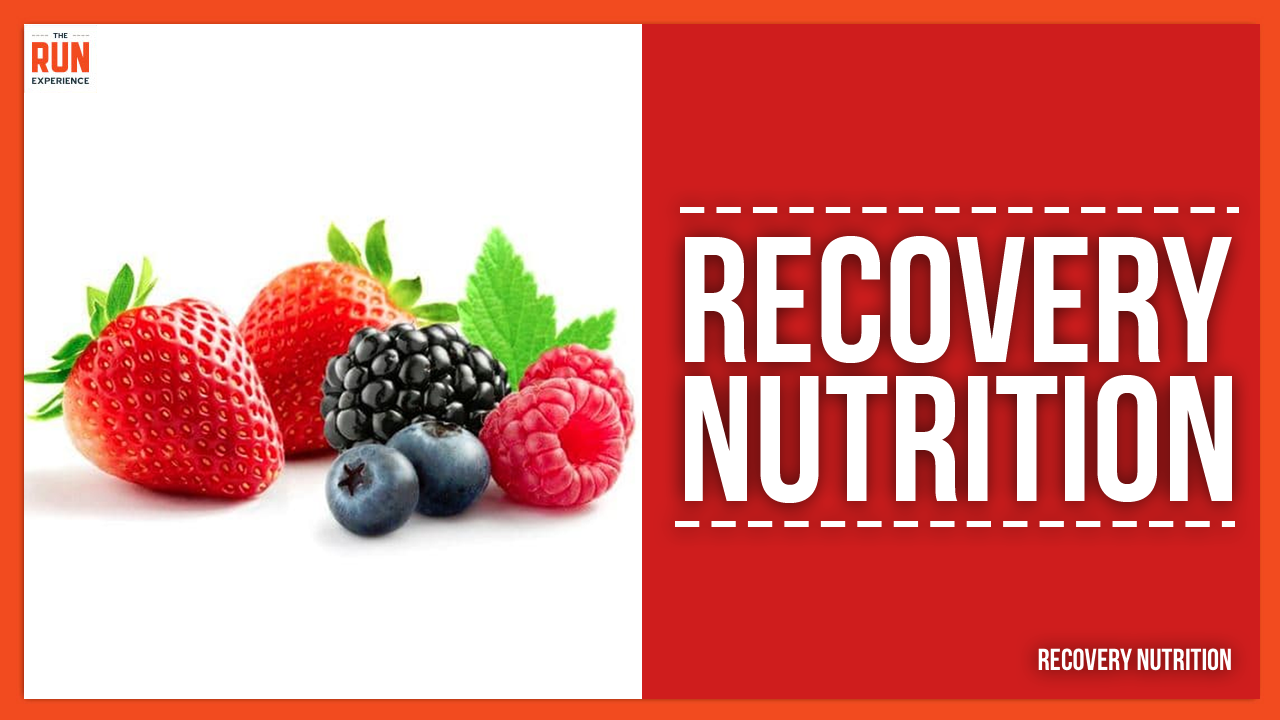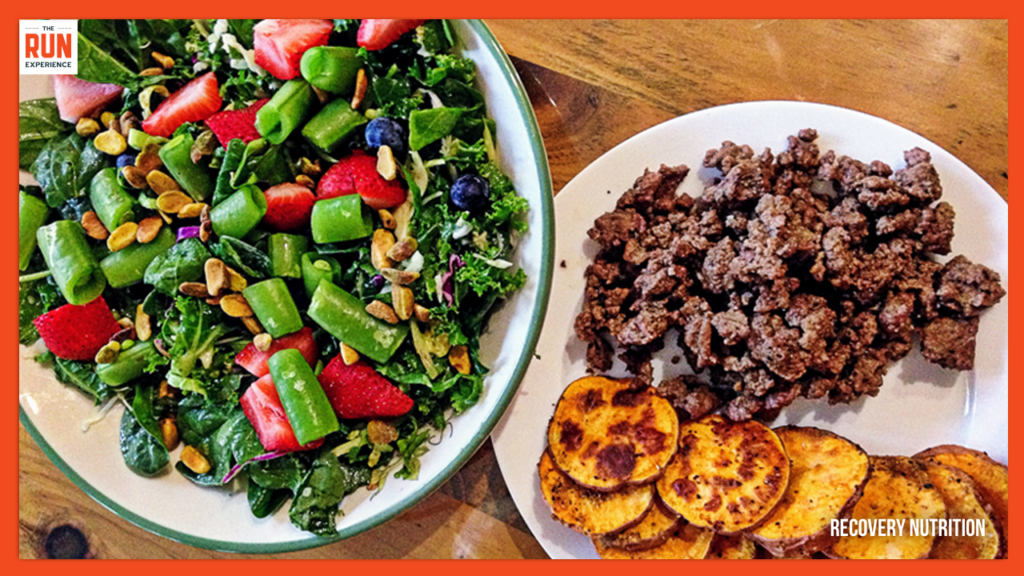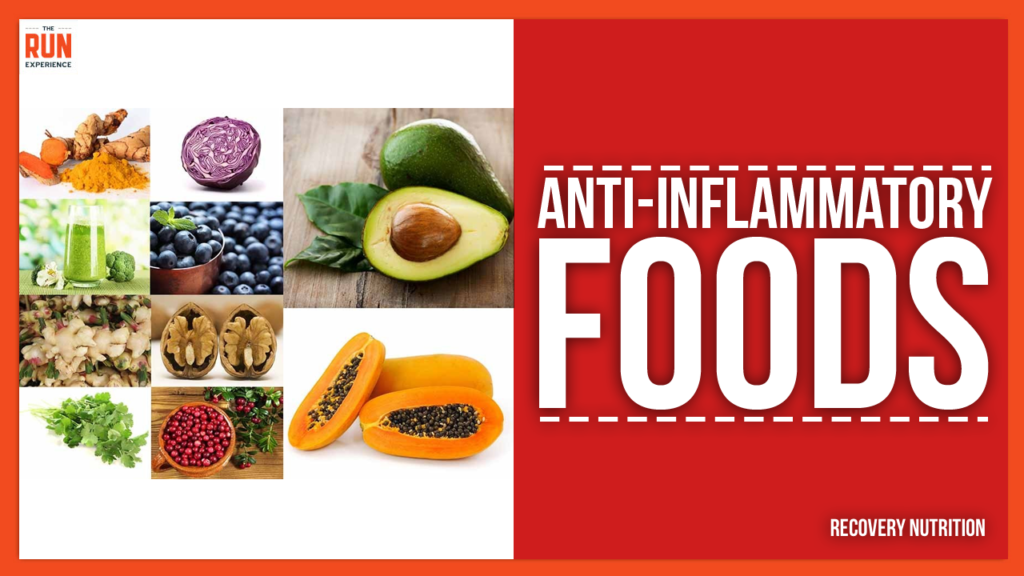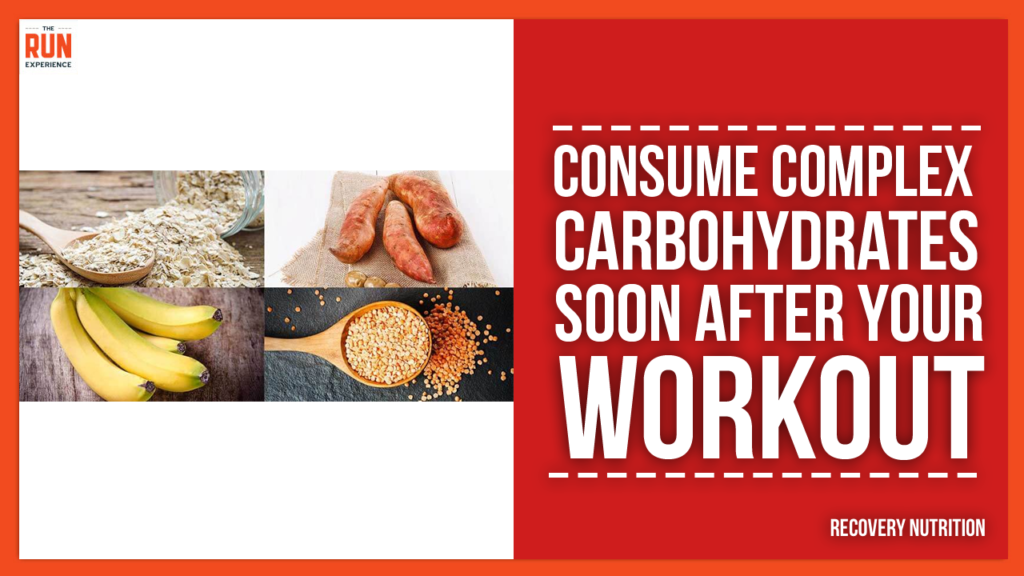Best Recovery Food for Runners Post-Run (Snacks & Meals)
Are you an aspiring runner & wondering what should you eat after running? Check out the best recovery food for runners post-run (snacks & meals).

Looking for the best recovery food for runners? You’ve come to the right place.
Recovery nutrition has become a key performance component now that athletes can access things like recovery centers, drinks + bars, and recovery experts. However, it is not a "one size fits all" concept!

Misguided recovery eating practices can put a drain on the wallet and can lead to unintentional consequences such as weight gain and/or failure to recover fully and optimally.
To avoid these consequences, it is crucial to understand why we refuel and how best to do it!
Why We Need the Best Recovery Food for Runners
Food-based recovery in between sessions fulfills one of the following two goals:
Restoration of body losses and changes caused by a workout
This is our aim when we’re in the thick of race season. We want to bounce back as quickly as possible so that we’re always ready to push the envelope on our next run.
Our main goal will be to restore performance levels as efficiently as possible so that we’re ready for our next session.
Adaptive responses to the stress and/or stimulus provided by a workout
During the “off-season,” our recovery nutrition falls more under this category. We want to see long-term improvements in strength, speed, and endurance, so we’re eating to ensure our body improves as it recovers.
Because of this, think more gradually, aiming to, over time, make the body better at what it does.
Remember, lighter workouts do not create a major demand on your body. So, our goal is not to replenish everything we think our body has lost as fast as possible. Instead, focus on foods that will help your body adapt and improve.
The Science Behind Recovery Nutrition
Muscle glycogen is a stored form of glucose, which is a primary energy source for muscle contractions during physical activity. It is stored in the muscle cells and the liver, ready to be converted back into glucose to provide a quick source of energy when needed.
- Energy Supply: During prolonged or intense exercise, your muscles rely heavily on glycogen stores for energy. This makes glycogen an essential fuel for maintaining endurance and performance levels.
- Performance Maintenance: Adequate glycogen stores allow athletes to sustain high-intensity efforts for longer periods. When glycogen levels are depleted, performance can drop significantly, leading to fatigue and decreased athletic output.
- Recovery Enhancement: Post-exercise, replenishing glycogen stores is critical for recovery. It helps restore energy levels, repair muscle tissue, and prepare the body for the next workout session.
During exercise, especially activities like running, your body breaks down glycogen to produce glucose, which is then used to generate ATP (adenosine triphosphate), the primary energy carrier in cells. The more intense and prolonged the exercise, the faster glycogen stores are depleted. This depletion can lead to fatigue, reduced performance, and slower recovery times.
Importance of Replenishing Glycogen
- Immediate Replenishment: After a workout, the body is primed to replenish glycogen stores quickly. Consuming carbohydrates soon after exercise can enhance glycogen synthesis rates, ensuring that muscles are refueled and ready for subsequent activities.
- Optimal Recovery: Efficient glycogen replenishment helps in faster recovery, reduces muscle soreness, and prepares the body for the next training session. Without adequate glycogen restoration, athletes may experience prolonged fatigue and increased risk of injury.
Role of Macronutrients
Carbohydrates
- Primary Role: Carbohydrates are the main source of energy for replenishing glycogen stores. They are broken down into glucose, which is either used immediately for energy or stored as glycogen in the muscles and liver.
- Recovery Contribution: Consuming carbohydrates post-exercise helps to rapidly restore glycogen levels, ensuring that muscles are ready for future workouts. This is particularly important after long or intense training sessions.
- Recommended Intake: Aim to consume about 1 gram of carbohydrate per kilogram of body weight within the first 30 minutes to 2 hours after exercise for optimal glycogen replenishment.
Proteins
- Primary Role: Proteins provide the building blocks (amino acids) necessary for muscle repair and growth. They play a crucial role in the recovery process by repairing muscle fibers that are damaged during exercise.
- Recovery Contribution: In addition to aiding muscle repair, protein intake post-exercise helps to reduce muscle protein breakdown and promote muscle protein synthesis. This leads to stronger, more resilient muscles.
- Recommended Intake: Combining carbohydrates with protein in a 3:1 or 4:1 ratio (carbs to protein) is often recommended. This combination enhances glycogen replenishment and provides the necessary amino acids for muscle repair.
Fats
- Primary Role: Fats are a secondary source of energy and play a vital role in overall health, including hormone production and nutrient absorption.
- Recovery Contribution: While not as critical immediately post-exercise, healthy fats are important for reducing inflammation and supporting overall recovery. They also provide a sustained energy source for longer-term recovery needs.
- Recommended Intake: Include healthy fats like avocados, nuts, seeds, and olive oil in your meals throughout the day to support recovery and overall health.
How Each Macronutrient Contributes to Overall Recovery:
- Carbohydrates: Rapidly replenish muscle glycogen stores, providing the energy needed for the next workout.
- Proteins: Aid in the repair and rebuilding of muscle fibers, reducing muscle soreness and enhancing muscle strength and resilience.
- Fats: Support overall health, reduce inflammation, and provide sustained energy for long-term recovery.
Refueling in a Nutshell

Demanding exercise (either intense or long in duration) depletes muscle glycogen – a critical muscle fuel that must be restored if the athlete wants to jump back in soon.
Even when a carbohydrate supply is available, muscle glycogen restores at about five percent per hour. Therefore, it can take around 24 hours for a depleted muscle to refill its glycogen stores.
How Soon Do I Need to Eat?
If your recovery falls more into the adaptation category above, it’s alright to lose a few hours of active recovery. Maybe there are no healthy foods around right after your workout, or you’re managing a busy schedule that day.
Get some good recovery meals in when you can, and don’t stress!
However, if you are in the thick of marathon or ultra training and have another workout coming right around the corner (in 8 hours or less), you must start refueling as early as possible.
Best Recovery Foods for Runners

Believe it or not… carbs! Start consuming good, complex carbohydrates soon after your session finishes.
Aim for a recovery snack or meal providing carbs equal to around one gram per kg body weight: e.g., 50 grams for a 50 kg (110 pounds) female, 80 grams for an 80 kg (175 pounds) male.
If you adhere to more of a high-fat/low-carb diet, you can start with a little less than the above formula and see how you feel, and then work up or down from there.
Similarly, if you minimize carbs in your diet, time them so that the ones you eat come right after your workout. Your body will thank you!
Our Favorite Run Recovery Foods
Now that we have all that info, let’s get cooking! Below is a list of our favorite foods for muscle recovery. Incorporate some or all of these into your meals and snacks into your running training plan, and get ready for your next good workout!
- Tart cherries
- Turmeric powder
- Ginger
- Manuka honey
- Cacao powder
- Nuts & seeds
- Eggs
- Salmon
- Sardines
- Greens or greens powder (spinach, arugula, kale, chlorella, & spirulina)
- Sweet potato
- Winter squash
- Berries
- Green tea
- Cottage cheese
What to Eat After a Run (Immediately)?
Post-run nutrition is crucial for recovery and performance. Consuming the right nutrients shortly after a run can help replenish glycogen stores, reduce muscle protein breakdown, and promote muscle protein synthesis.
Here's a guide on what to eat immediately after a run:
Carbohydrates
The primary purpose of carbs post-run is to refill the muscle glycogen you've depleted during your workout. Some great carb sources include:
- Fruits like bananas, berries, and apples.
- Starchy foods like potatoes, rice, quinoa, and oats.
- Grain-based bars or recovery-specific sports nutrition bars.
Protein
Protein after a run aids in the repair and growth of muscle fibers that may have been stressed or slightly damaged during the exercise. Good protein sources include:
- Whey or plant-based protein shakes.
- Greek yogurt or regular yogurt.
- Cottage cheese.
- Eggs or egg whites.
- Lean meats like chicken or turkey.
Fats
While not as urgent as carbs and protein, including some healthy fats, can be beneficial.
These could include avocado, nuts, seeds, or a drizzle of olive oil.
Fluids
Rehydration is paramount. You lose a significant amount of fluid through sweat, especially on hot and humid days. Water should be your go-to, but you'll want to consider electrolyte solutions or sports drinks to replenish lost sodium and other essential minerals—especially after a long run or hot conditions.
Electrolytes
Important for muscle function and regulating fluid balance in your cells.
As mentioned, sports drinks are an option, but many whole foods like bananas (for potassium) and dairy (for calcium and sodium) can also provide these essential minerals.
Antioxidants
Intense or prolonged running can cause oxidative stress, so consuming foods rich in antioxidants can help combat this. Berries, cherries, grapes, and dark leafy greens are rich in antioxidants. Turmeric and ginger, often found in recovery smoothies, have anti-inflammatory properties that can aid muscle recovery.
Sample Post-Run Snacks/Foods
- A protein shake with a banana.
- Greek yogurt with honey and berries.
- A slice of whole grain bread with natural peanut butter.
- A recovery smoothie with spinach, Greek yogurt, almond milk, berries, and a scoop of protein powder.
- Chocolate milk (offers a good balance of carbs, protein, and fats).
While these suggestions are geared for immediate post-run consumption (within 30 minutes to 2 hours after the run), it's essential to continue eating balanced meals throughout the day to further aid recovery. Listen to your body, and adjust based on the intensity and duration of your runs and your specific fitness goals.
Best Post-Run Meal
While immediate post-run nutrition typically focuses on quick, easily digestible snacks to jumpstart recovery, a post-run meal, consumed a bit later, delves deeper into fulfilling the body's overall nutritional needs. This meal focuses on replenishing glycogen, providing a larger dose of protein for muscle repair, and delivering essential vitamins and minerals.
Here are some of the best post-run meals to consider:
- Grilled chicken, quinoa salad with mixed veggies, topped with feta cheese and olive oil dressing.
- Salmon fillet with steamed broccoli and roasted sweet potatoes.
- Stir-fried tofu with bell peppers, snap peas, carrots, and cashews, served over brown rice.
- Spaghetti with lean ground turkey meatballs, a side salad, and whole grain garlic bread.
- Lentil soup served with whole grain rolls and green salad.
Think of the immediate post-run snack as a "quick fix" – rapidly delivering essential nutrients to initiate recovery. The subsequent meal is more comprehensive, ensuring the body receives a balance of macros and micros to fully recuperate and prepare for the next run.
Both components, the snack, and the meal, work in tandem to maximize recovery and optimize future performance.
Incorporate These Run Recovery Foods into Your Routine
Keep these run recovery foods on hand to make it easy to make a post-run smoothie or meal. Make it a regular part of your routine to consume the right nutrition post-run, and you’ll find yourself bouncing back faster and hitting new PRs in no time.
